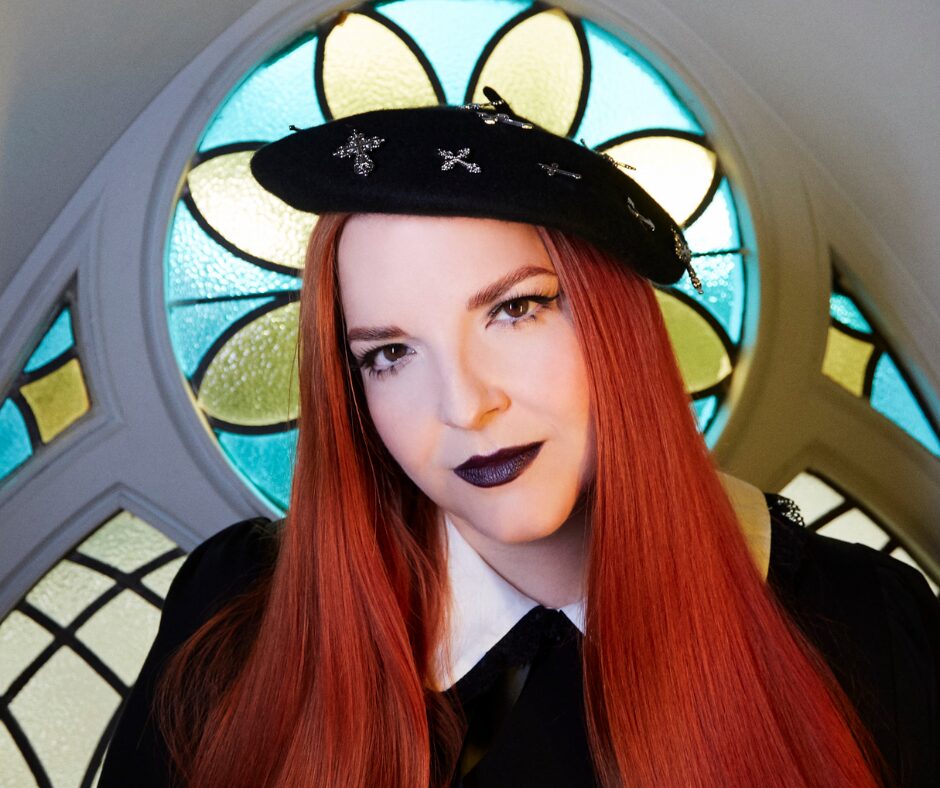
Adaline continues to make waves in the entertainment industry for her distinctive talent and flair, and has been hailed as “one of the best young songwriters in the country” (CBC Q) and “a rising Canadian talent that takes listeners to angelic heights” (Billboard Magazine). The Canadian alt-pop artist has risen to success with the release of four critically-acclaimed studio albums, garnering millions of streams and dozens of editorial playlists. Since graduating from the Slaight Family Music Lab in 2013, Adaline has garnered attention as a songwriter, licensing more than 85 film and television scenes, including cult- favourites like Grey’s Anatomy, 90210, Tiny Pretty Things, and more. Adaline’s career journey showcases her unwavering dedication to her craft, and exemplifies the vital role of music creators in film, TV, and digital media, highlighting the importance of CFC programs, which are designed to nurture talent and creating opportunities for Canadian creators in the screen industry.
This May, Adaline performed at The CFC Gala: DECADES, an annual fundraising gala in support of the next generation of Canadian storytellers. This year’s gala was a significant tribute to beloved filmmaker and CFC founder, the late Norman Jewison. Adaline gave a stunning performance, singing a couple of songs from Norman’s movie soundtracks.
When she’s not in the studio or on stage, Adaline is committed to nurturing the growth of her non-profit organization called Bad Believer, inspired by Adaline’s experience growing up as a minister’s daughter and her journey of reconciling queerness and spirituality. The organization began when Adaline released here coming-out ballad “Ghost”, which was licensed to the popular TV show Wynonna Earp. Fans of the show were so moved by the lyrics, they began seeking out the ballad and discovered Adaline’s story. After an outpour of support, Adaline created Bad Believer, and has since been dedicated to providing resources, therapy referrals, and a community for 2SLGBTQIA+ people healing from spiritual and religious trauma.
We recently spoke with Adaline to learn more about her musical journey, advocacy, and what’s next for the talented star. Read on in the spotlight below.
Can you tell us about your journey into music and what sparked your passion for it?
As the daughter of an evangelical minister, my earliest memories are of singing on church stages. Music was a huge part of my church experience. And church was a huge part of my life experience. I was singing in multiple services a week, and by 14, I was leading worship. In charismatic churches, the music is a direct conduit to God. It ushers people into this intimate space, and as a worship leader, you are responsible for facilitating this journey. In some ways, this relationship with music was beautiful, but it also made music somewhat transactional. I gauged the success of my musicality by how well I was fostering a connection to God during a Sunday service. The concept of sitting down and listening to music purely for enjoyment was completely foreign to me. And the concept of playing music just for fun was even more foreign. I didn’t do either of these things until I was 20. In college, one of my friends gave me a CD to listen to: Radiohead’s “OK Computer.” I will never forget listening to all the moody, minor-keyed soundscapes. It is so different from my religious catalogue, but also somewhat familiar in its emotional capacity to move me. I was hooked. It shaped my musical lens, and to this day, my music reflects these influences.
Who are some of your musical inspirations?
I grew up playing classical music, so Beethoven and Chopin’s emotionally charged compositions are places I still go for inspiration. In a similar emotional realm, I am inspired by Sigur Ros, Godspeed You!, Black Emperor, and Radiohead. I’m also drawn to the dreamy soundscapes of Beach House, Lana Del Ray, and Weyes Blood. I love the interplay of dreamy and bright tones with dark electronic elements.
How did your time in the Slaight Family Music Lab shape you as an artist, both professionally and personally?
Working on so many uniquely toned productions with various musical needs allowed me to work in new genres, which I found so exciting. It’s so rare for a songwriter to be writing a 1950’s doo-wop song on Monday, an Irish fiddle jig on Wednesday, and an eerie horror electronic piece on Friday. We are so often working in pop genres, so being able to try my hand at new genres strengthened my songwriting and gave me confidence for future projects. Songwriters are also so rarely writing to picture. We rarely get to be a part of the process. Getting a front-row seat into the inner workings of the film world was an invaluable experience and empowered me to engage with film projects with a deeper understanding.
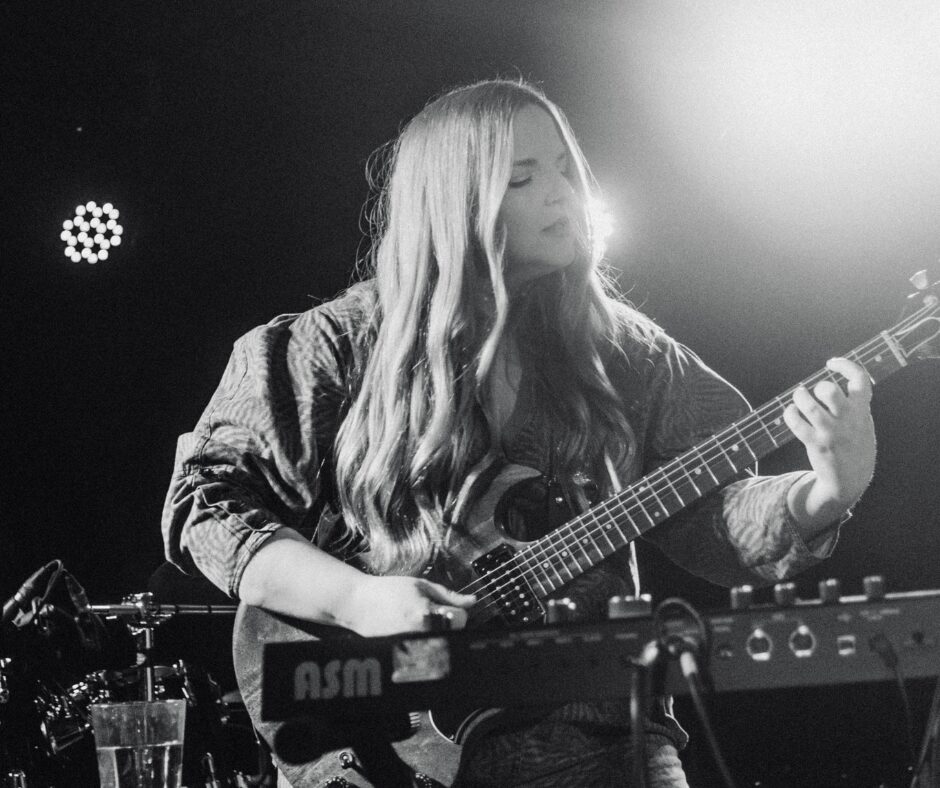
Adaline performing live
How did your time at the CFC impact your career?
Coming to the CFC, I had spent a lot of time alone in my career as a solo artist. I had moments of collaboration in the studio, of course, but the majority of my experience was solitary. I reflect back and recognize how lonely I was coming into the program. From day 1, I felt a powerful sense of collaboration, support, and excitement. It’s so rare as a musician that you get to collaborate with writers, directors, producers, and actors on the ground floor of creation. I felt myself become a part of a creative machine that had seemingly unstoppable power, and it revitalized my passion for music. I felt a strong sense of belonging that is hard to find. Being able to get out of my own head and align myself with other inspiring creatives is probably what gave me my second wind in my career to keep going. I’ll be forever grateful to the CFC for that. The relationships and connections I made during my time at the CFC have led to dozens of work opportunities. Even years later, my relationship with the CFC continues to provide new inroads and creative collaborations.
Could you share any highlights during your training at the CFC?
The people were truly the highlight. Across all programs, everyone’s energy was electric. I especially felt a deep connection with the other music lab participants, and they continue to be friends and collaborators to this day. It was also through my experience in the program that I was introduced to LA for the first time. On this trip, the CFC connected me with world-class composers and songwriters, and I was given the opportunity to network with people in the US industry, some of whom I still work with today. This experience shaped my decision to move to LA, which I did shortly after the program ended.
The other obvious highlight was when Norman invited myself and my fellow music lab participants to go for coffee with him and Quincy Jones. I’ll never forget Norman and Quincy reminiscing over their memories of working together on In the Heat of the Night. Investing in the next generation was clearly a passion for both of them, and they spent time to make sure we felt that support.
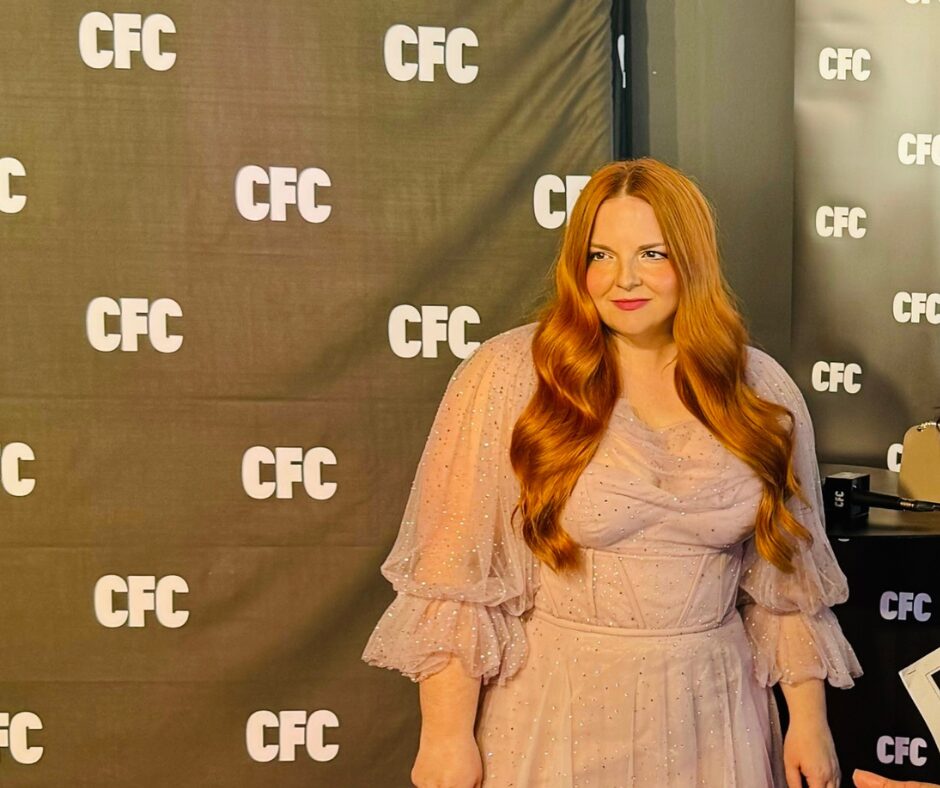
Adaline at The CFC Gala: DECADES / Photo Credit: Julie Riemersma Photography
You recently performed at The CFC Gala: DECADES; can you tell us about the inspiration behind your performance?
The DECADES Gala was especially powerful this year, as it was a tribute to Norman. I was asked to choose a couple of songs to perform from Norman’s movie soundtracks. Browsing through the extensive catalogue was an awe inspiring experience. Film after film of moving, powerful, playful, quirky, and beautifully written songs. I decided to perform “Only You”, from Only You and “The Windmills of Your Mind” from The Thomas Crown Affair. The musical director was able to bring in some string players to accentuate the cinematic quality of these songs, especially the latter. I felt an overwhelming amount of emotion performing these monumental songs in front of the gala attendees, including Norman’s friends and family. After the performance, a few of Norman’s family members kindly came to share that they enjoyed the performance, especially “The Windmills of Your Mind,” a beautiful and emotional song Norman had commissioned for the opening credits of the film, which went on to win an Oscar for Best Song in 1968. That moment of connection between myself and Norman’s family was truly a gift and a moment I’ll never forget.
Why do you think fundraising events such as The CFC Gala: DECADES are important for Canadian creators and the preservation of Canadian art?
There really isn’t a place quite like the CFC. I travel a lot on tour and meet lots of creatives who, upon hearing about the CFC, wish they had an opportunity like I did. An incubator of creativity with a uniquely supportive quality. The financial reality of filmmaking shackles creatives, with most never getting a chance to launch. To be able to create with financial and community support is a unique and crucial experience we should protect and fight for. It is especially important in smaller countries like Canada, where exporting Canadian talent and productions is so important to reach a greater audience and make our global mark. When I think of a production like Orphan Black that developed at the CFC and went on to impact audiences across the world, it accentuates the importance of preserving these spaces for future Canadian creators.
Can you share your creative process for songwriting? And maybe give us some tips on overcoming writer’s block?
I usually write music and lyrics separately. I plan writing trips for myself where I pen books full of lyrics, without ever thinking about the music. Then I write music with lyric-less melodies. Letting the melodies exist without any constriction of syllables. I then marry the two. Sometimes the lyric wins, and sometimes the melody wins. Somehow, the push and pull settle into something. There’s also those magic moments where both come at the same time.
Writer’s block is an inspiration block. The best way to get out of a block is to immerse yourself in inspiration from film, music, art, and nature. Also, immerse yourself in everyday stories. Strike up a conversation with someone at the coffee shop. Get curious about the story of the person you walk by on the street. I find writing solely from my own life gets me blocked pretty easily. As I’ve matured as a songwriter, it’s become less about my own cathartic release of my experience and more about understanding the stories of others.
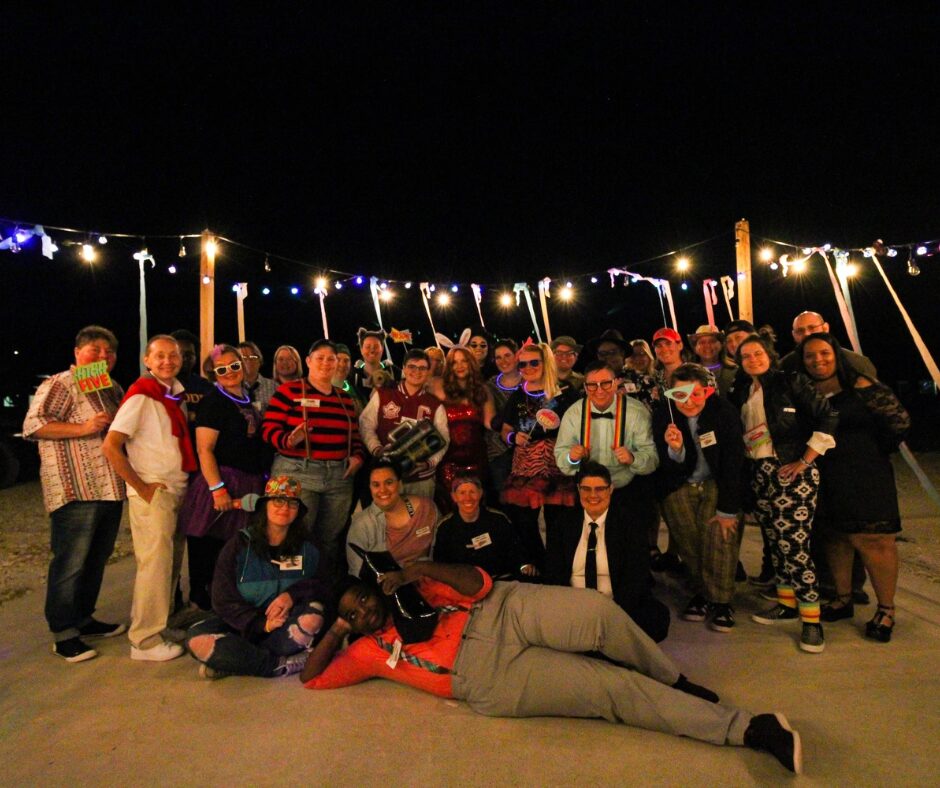
Community members from Bad Believer
As a queer artist, how does your identity influence your music and storytelling?
I had a powerful music moment in 2020 when my coming-out song “Ghost” was licensed to a ground breaking queer love scene in Wynonna Earp. After the episode aired, thousands of people came to my YouTube channel and learned more about my journey of reconciling my queerness with my religious upbringing. Hundreds of these people reached out, resonating with my story as they were going through similar experiences, and from these connections, I started a non-profit organization called Bad Believer that helps 2SLGBTQIA+ people heal from religious and spiritual trauma. Their stories of resilience inspired my latest release, “Hymnal,” which explores the vulnerability of coming out in religious spaces, the heartbreak of being rejected by community and family, and the failure of a church system to practice the love they preach. For a long time, my queerness was hidden, until I wrote “Ghost,” a love song that used she pronouns. “Ghost” took me on a journey of authenticity to where I am now writing freely about my queerness and identity.
What role do you think music plays in representing, advocating for, or being an ally of the 2SLGBTQIA+ community?
The story of how my song “Ghost” sparked a conversation that turned into a non-profit support community shows how vital a tool music is for representation and connection. There is immense power in being seen and understood through music. Knowing you are not alone on your journey can sometimes be a matter of life and death, especially for queer people in religious spaces. Representation is critical. Music can also reach across the aisles to people who may not understand or know any queer people. It may be the first point of access for them to hear 2SLGBTQIA+ stories and break down some of the fear based narratives that tear our countries apart. In a world where we are becoming more and more polarized, it is more important than ever to embrace and cultivate the universal languages of art.
What advice do you have for aspiring artists who are currently considering a career in the music industry?
Develop a routine that keeps you connected to your love of music and your creativity. The music industry now requires engaging in so many things that have nothing to do with music. It’s crucial to keep your relationship with music alive because you will spend so much of your day engaging with things that pull you away from it. You’ll become a manager, a booking agent, a publisher, a content creator, a digital marketing innovator, and sometimes a songwriter. Without a concerted effort, the music can fade into the background. Much like we put work into our romantic relationships to keep the spark alive, do the same with music.
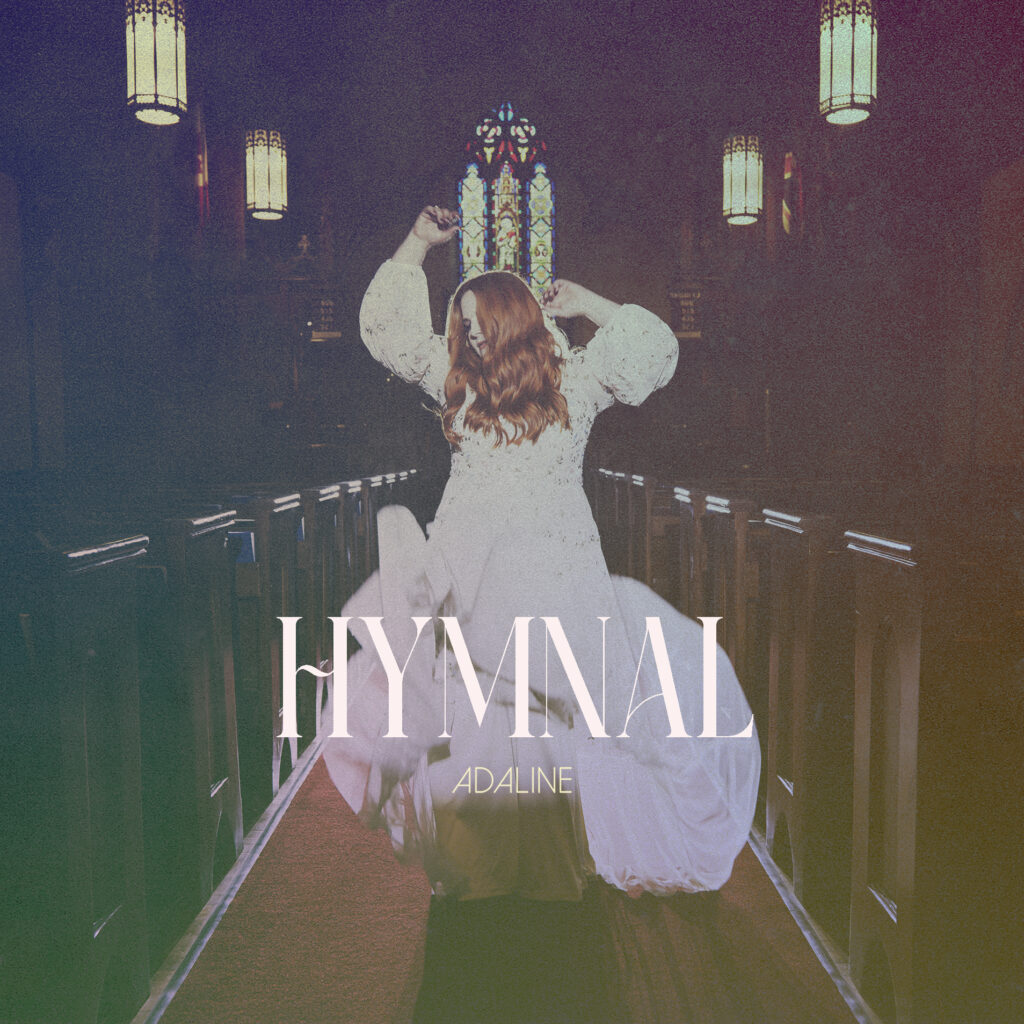
Adaline on the cover of her latest album Hymnal
What’s on the horizon for you?
I’m currently on tour in the US promoting my newest release, “Hymnal,” with additional tour dates this November. I have an upcoming appearance in a Canadian TV show (an opportunity that came from performing at the CFC Gala!), and I’ll begin to write for a new album this summer.
What are you currently listening to? Any recommendations to add to our playlist?
Some CFC Music Alumni, of course!
- Liam Russell – Half Chance
- Carmen Elle – Hey You There
- Robyn Dell’Unto – Common
- Casey MQ – Grey Gardens
- Todor Kobakov’s – Pop Music
Share this post: